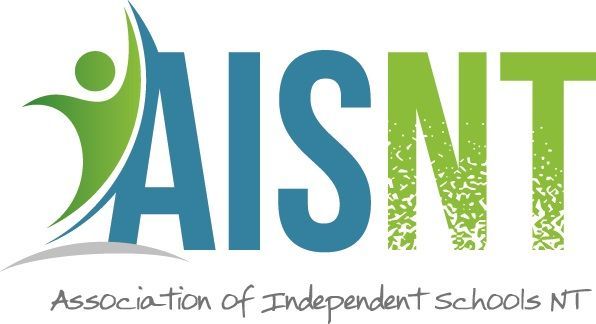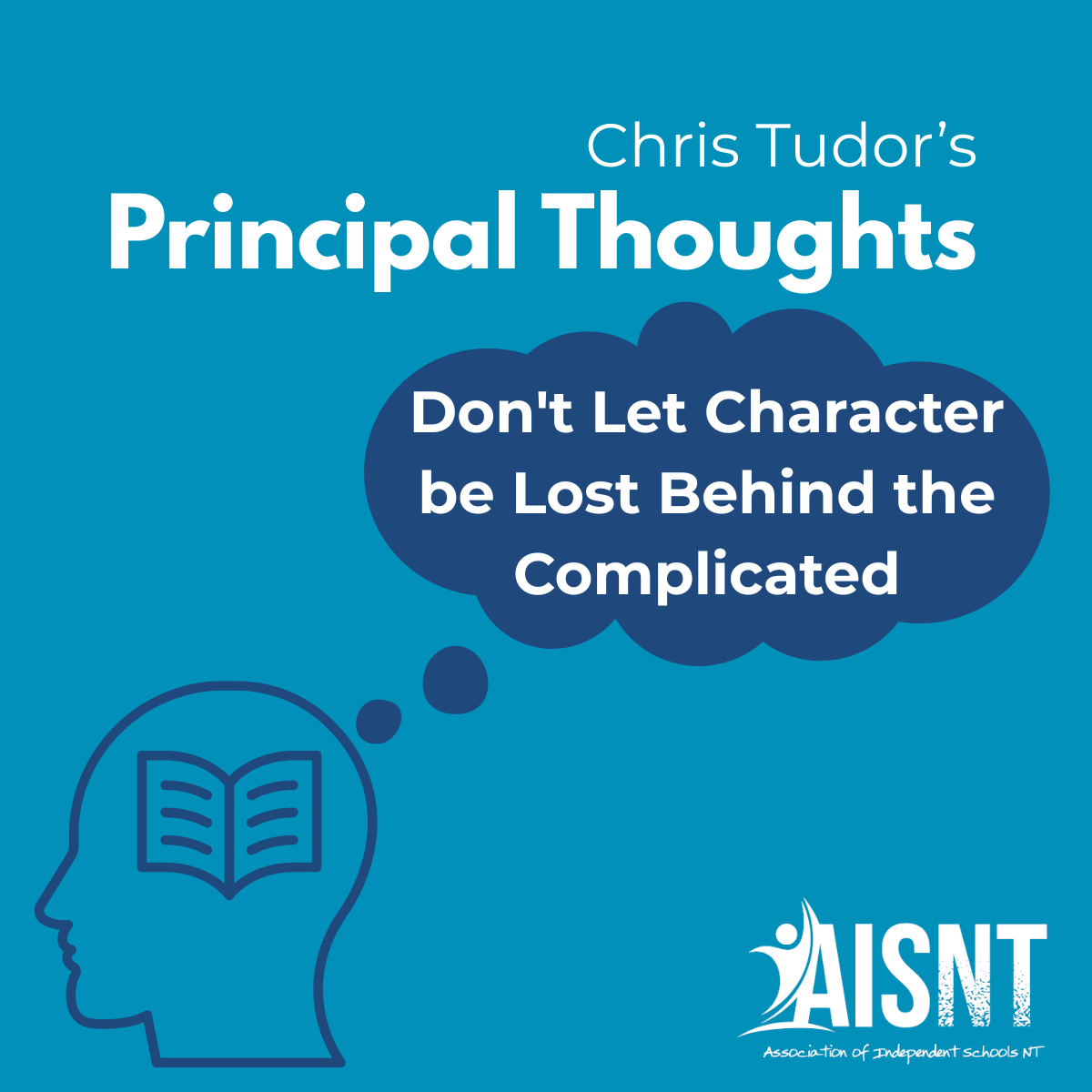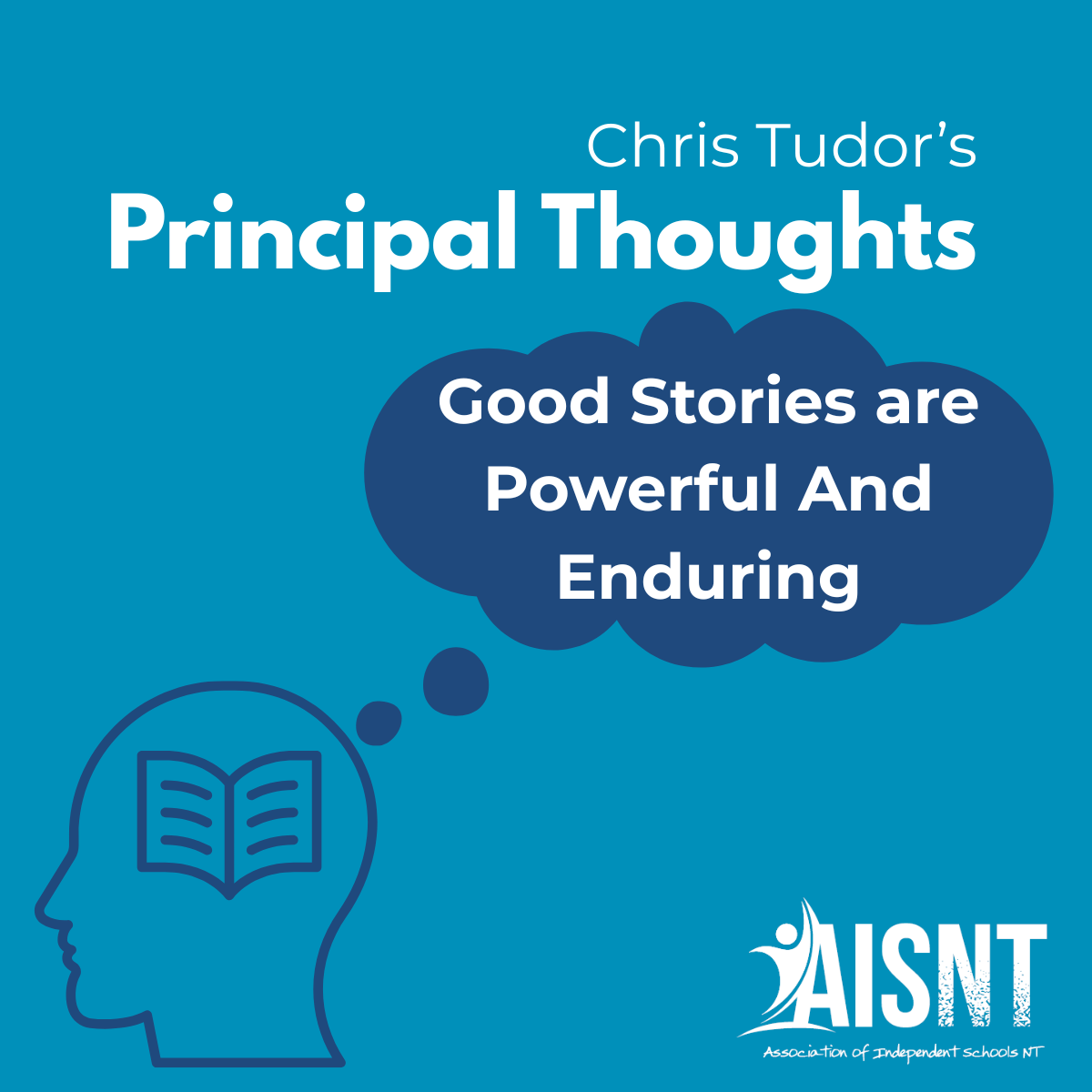Principal Thoughts Issue 4
In Principal Thoughts 2, I mentioned the importance of my mosaic of experience and its vital effect on my understanding as an educator. I believe the richness of this experience should not be confined to simply the latest research and thinking but should be drawn from everywhere and all ages. I was recently re-reading Sir Chris Bonington’s book on the conquest of the South West Face of Everest in 1975 to see if my first thoughts about his approach to organisation and leadership were still as meaningful today as they were to me in 1976 when it was first published. I used his achievement widely in my Social Studies teaching at Wangaratta Tech where I had commenced teaching. And yes, it is as relevant and still a wonderful jumping off point for reflection on Leadership.
Later in my career I was introduced by a business man to Socratic questioning and was fascinated how relevant the thinking of Socrates could be today, particularly in critical areas of society, though Socrates died in 399 BC. Clearly an understanding of Socrates had not emerged for me in my earlier teaching journey. But to embrace this can only be helpful for everyone in this complex changing world.
I was introduced to the philosophies of Kurt Hahn whilst at school and in fact part of my education was based on these. Many of his ideas made sense to me and I endeavoured to employ them in my education journey. However I craved a deeper understanding of them particularly as I was setting up the school at St Philips. It was to my good fortune that the first Director of Round Square visited in 1991 in the third year of the school. Jocelyn Winthrop-Young had been at Hahn’s first school, Salem, in Germany and had then become student number 1 at Gordonstoun in the North of Scotland which Hahn founded. Prince Philip had followed the similar trail. Hungry for detail about Hahn, I engaged in conversation with Jocelin and had hours of first hand information. This was the start of a friendship with Jocelin that lasted for years and gave me an opportunity to seek enlargements on points and clarifications about Hahn the man, his philosophies and his capacity to “make things happen “ and foster real social change. This knowledge and understanding became fundamental to my position as a Principal. Some “lighthouse” statements for me included: “There is more in you than you think,”which became the Gordonstoun motto, in French, “Plus Est En Vous”.
“You don’t deserve to educate a student if you don’t believe in them.” This was such an powerful thought when dealing with students who were difficult.
“Tell a student that they are NEEDED rather than simple “go and do this”.
To me this became fundamental in inculcating the importance of the responsibility of service in students.
“Are you sure?”
This last statement was mentioned to me by a former pupil of Hahns who went on to become an educator, running two UK Round Square schools. I asked him what it was like being a student under Hahn and what was one of the pivotal statements he used to make. This was it , being Hahn’s response to information, ideas etc. It rang a profound bell with me and became significant in my approach to being a Principal. Judging the school’s climate is one of the most significant roles of ahead. I may have concluded that things were going pretty well in the school, but before becoming complacent, focussed on whether I was indeed sure! Such an important focus so often turned up unrecognised realities that needed attention. Being a Principal must be a journey of belief in on-going improvement.
Howard Gardner was the John H.and Elisabeth A. Hobbs Professor in Cognition and Education at the Harvard Graduate School of Education. amongst other notable positions. He is famous for his theory of multiple intelligences. This rings true for me and many teachers will have seen examples of it in their daily work. Intelligence, he observed, goes well beyond the traditional areas which are verbal, linguistic, logical and mathematical. At first presentation this rang positive bells in my mind and from then on I looked for the various characteristics that students showed. There are of course examples of many noted people that didn’t fit the traditional mould. The true understanding of a student does depend on your perspective of that person and your desire to search within them for their talents. It may also depend on the style of teaching they respond to as to how their talents are revealed.
Years ago some one gave me an antique book called “The Principles and Practice of Teaching and Class Management”(1902)
For years I enjoyed having the book on my bookshelf but didn’t read it. Recently I did read sections and to my surprise found areas which did indeed stimulate my thought. Being so old and likely to be out of date I didn’t think this would occur through a book so yellowed with years. In the book” Kurt Hahn 1886-1974 an appreciation of his life and work” Complied by D.A. Byatt MA published by Gordonstoun School in 1976, Prince Philip, Hahn’s former pupil, writes in the forward: "His active and fertile mind was always plotting, scheming, devising and developing new ideas which seemed to bubble up from his constantly evolving philosophy of education.”
Prince Philip also writes: “In fact, of course his heart was even bigger than his brain and a twinkle was never far from his eye. He had a fund of entertaining and illuminating stories with which he larded his speeches, and an impish sense of humour would transform a rather somber countenance into a child-like chuckle and delighted expression. Eccentric perhaps, innovator certainly, great beyond doubt.” Not a bad way to be remembered. It is also important that a Principal is known to stand for something of significance.
As a principal and the educational leader in the school it is essential that an open mind is kept and that it is stimulated by whatever comes by and a determination is made to enrich practice in an ongoing way. Stimulating reflection will result from exposure to many diverse areas, eras and sources. Looking for new points of reflection and the resulting refining of practice and organisation is exciting and indeed vital in the leadership of a good school. And of course ensuring that your personal mosaic is rich in colour and variety drawn from life’s rich experiences will foster the generation of constructive ideas and action related not only to academic achievement but to personal development because that is ultimately what the school you lead is about.
Chris Tudor
AISNT Historian & Principal Liaison



